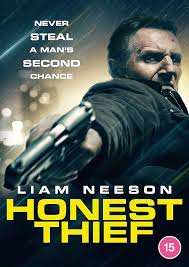Exploring the Concept of the Honest Thief

Introduction
The concept of an “honest thief” challenges traditional perceptions of crime and morality, raising important questions about integrity and redemption. With recent films and stories highlighting this intriguing character archetype, the topic has gained relevance in both cinematic and literary discussions. The idea prompts audiences to reconsider the grey areas of morality while examining the motivations behind criminal acts.
The Rise of the Honest Thief in Popular Culture
In recent years, various media have introduced audiences to the idea of the honest thief – an individual who engages in theft but possesses a moral compass. This narrative device is exemplified in the film “Honest Thief”, released in 2020 and starring Liam Neeson as a bank robber seeking redemption. Such narratives have become more prevalent, resonating with viewers searching for stories that transcend the conventional boundaries of good and evil.
Why the Honest Thief Resonates
One reason the honest thief resonates with audiences is the complexity it introduces to the moral framework usually found in heist films. The protagonists in these narratives often steal from the wealthy or corrupt, appealing to a sense of justice among viewers. In the case of “Honest Thief”, the character’s decision to return the stolen money and seek a clean slate offers a narrative of redemption that breathes new life into the crime genre.
Moreover, the honest thief archetype taps into contemporary themes of social injustice, as many stories highlight systemic issues that drive individuals to commit crimes under duress. By framing thieves as flawed but ultimately redeemable characters, audiences can empathise with their struggles.
Impact on the Film Industry
The rise of honest thieves in films has prompted filmmakers to explore deeper ethical and societal questions. This shift has led to more nuanced storytelling where the lines between heroism and villainy are blurred. The success of such films indicates a growing interest in character-driven narratives that focus on human morality rather than straightforward crime-and-punishment tropes.
Conclusion
As the narratives around honest thieves continue to evolve, they prompt important discussions about the nature of crime, morality, and redemption in contemporary society. The increase in films and stories exploring this theme suggests that audiences are ready to engage with complex characters and challenging moral dilemmas. Looking ahead, the portrayal of the honest thief may serve as a catalyst for deeper societal reflections, inviting viewers not only to critique crime but also to empathise with the circumstances that drive individuals to wrongdoing.





